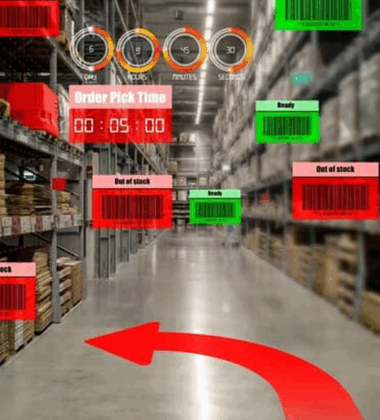If you’re bringing a food product to international markets, certification isn’t just a requirement—it’s a signal of trust, safety, and scalability. At the Global Products Expo, happening June 26–28, 2025, at the New Jersey Expo Center, the spotlight isn’t just on the food. It’s also in the seals, standards, and certifiers behind every successful global product launch.
Food certifications are becoming a cornerstone of buyer decisions. Whether it’s kosher, halal, organic, gluten-free, or non-GMO, these labels directly influence consumer perception, shelf acceptance, and cross-border trade eligibility. At this year’s expo, you’ll find leading certification bodies sharing updates, auditing protocols, and resources for exporters who want to get ahead.
Here’s a breakdown of the top food certifications and the organizations behind them—and why they matter more than ever in 2025.
1. OU Kosher (Orthodox Union) – The World’s Most Recognized Kosher Symbol
If you’re targeting North America or the global Jewish market, the OU symbol is a must. The Orthodox Union certifies over 1 million products in more than 100 countries.
Why it matters:
- Recognized by retailers, importers, and buyers globally
- Required by many major supermarket chains in the U.S.
- Adds perceived value for health-conscious and allergen-aware consumers
Tip for exhibitors: If your product is plant-based or vegan, kosher certification adds an extra layer of marketability, even to non-kosher audiences.
2. IFANCA – Halal Certification with Global Reach
The Islamic Food and Nutrition Council of America (IFANCA) is one of the top halal certifiers, especially for brands aiming to enter the Middle East, Southeast Asia, or serve Muslim communities in Western countries.
Why it matters:
- Meets global halal export requirements
- Recognized by halal authorities in 50+ countries
- Works with multinationals like Nestlé and PepsiCo
Expo Insight: Booths with dual halal and kosher labels gained the highest cross-cultural buyer interest at last year’s show.
3. USDA Organic – The Gold Standard for Organic Certification
The USDA Organic seal remains one of the most influential marks in the food industry. It applies to everything from snacks and supplements to meat and beverages.
Why it matters:
- Mandatory for claiming “organic” in the U.S. market
- Signals sustainability, soil health, and non-GMO sourcing
- Required for shelf space in natural product chains like Whole Foods
Global Expo Note: USDA-certified brands frequently partner with local farms to build traceable, regenerative sourcing stories—something increasingly important to international buyers.
4. Non-GMO Project – For Ingredient Transparency
In an era where ingredient scrutiny is at an all-time high, the Non-GMO Project Verified label is an asset. This seal confirms that none of the ingredients are genetically modified.
Why it matters:
- Consumer trust around transparency and sourcing
- Especially valuable for baby food, snacks, and supplements
- Popular among health retailers, food co-ops, and clean-label buyers
For startups: Adding this certification can help secure shelf space in competitive wellness-driven channels.
5. NSF International – Trusted for Clean Label and Safety
NSF is known for certifying food safety, clean-label ingredients, and supplement purity. Its certifications are often required for sports nutrition, functional beverages, and contract manufacturers.
Why it matters:
- Validates safety claims, allergen control, and facility compliance
- Works globally with regulatory bodies and ingredient suppliers
- Helpful when preparing for FDA or international audits
Expo Advantage: NSF frequently hosts panels on food fraud prevention, clean-label evolution, and global compliance.
6. BRCGS (British Retail Consortium Global Standards) – Retail-Ready in Europe
For brands eyeing European expansion, BRCGS certification is often a prerequisite. It’s one of the most respected food safety certifications for manufacturers and co-packers.
Why it matters:
- Required by many U.K. and EU retailers
- Ensures food safety, traceability, and risk management
- Highly recognized by international distributors
Export tip: Having BRCGS opens conversations with distributors in over 130 countries.
7. Gluten-Free Certification Organization (GFCO)
With celiac disease and gluten sensitivities on the rise, GFCO certification assures consumers and retail buyers alike.
Why it matters:
- Strict testing: products must contain less than 10 ppm of gluten
- Essential for baked goods, snacks, supplements, and beverages
- Popular in North America, Europe, and Australia
Packaging Note: GFCO has one of the most trusted and recognizable gluten-free seals in retail.
8. Fair Trade USA – Ethical and Sustainable Sourcing
For buyers looking to stock socially responsible brands, Fair Trade certification offers a clear signal of ethical sourcing and labor transparency.
Why it matters:
- Aligns with ESG goals for retail chains and distributors
- Adds depth to brand storytelling at point-of-sale
- Now expanding into dairy, produce, spices, and more
Expo Impact: Ethical sourcing was a key purchasing criteria among high-volume buyers at the 2024 show.
9. Safe Quality Food (SQF) – GFSI-Recognized for Global Supply Chains
The SQF certification is ideal for food manufacturers aiming to meet GFSI (Global Food Safety Initiative) standards.
Why it matters:
- Required by many large retailers and food service companies
- Covers food safety, quality control, and traceability
- Used in more than 60 countries
Who needs it: Exporters, ingredient suppliers, and co-manufacturers showcasing at the expo.
10. CertClean – For Natural and Non-Toxic Products
Emerging in clean beauty and now entering food-grade supplements, CertClean is gaining traction for products marketed as free from harmful chemicals.
Why it matters:
- New opportunity for plant-based food and wellness exhibitors
- Great for crossover SKUs in beauty nutrition or supplement spaces
- Popular with Gen Z buyers focused on holistic health
Expo Edge: Younger buyers were more likely to scan QR codes and explore brands featuring natural or clean-seal packaging.
Why These Certifications Matter More Than Ever
1. Retail Gatekeeping
Most major chains won’t accept products without recognized third-party certifications. These seals serve as filters for what even gets considered.
2. Consumer Trust
With increasing concerns around allergens, sourcing, and ethical production, certifications provide reassurance and build instant credibility.
3. Global Trade Compliance
From customs to retailer audits, food certifications streamline documentation and accelerate international entry.
How to Prepare Before the Expo
If you plan to showcase at Global Products Expo—or approach buyers after—here’s how to get certification-ready:
- Do a Certification Audit: Assess which certifications match your target markets and product claims.
- Vet Certifiers Early: Choose accredited certifying bodies based on recognition in your distribution regions.
- Train Your Team: Your booth reps should understand what each label means and how it impacts buyer decisions.
- Label for Clarity: Ensure packaging accommodates seals and QR codes without crowding your visual branding.
- Digitize Your Records: Certification traceability matters—consider using smart labeling or digital records that buyers can instantly access.
Final Thoughts
The food world isn’t just about what’s inside the package anymore—it’s about how you can prove it. At the Global Products Expo, the right food certifications don’t just open doors. They get you on shelves, into catalogs, and the carts of consumers around the globe.
Whether you’re pursuing kosher, halal, organic, gluten-free, or fair trade, these certifications offer the shortcut to buyer trust and market access. And the expo is where those journeys start—or accelerate.





